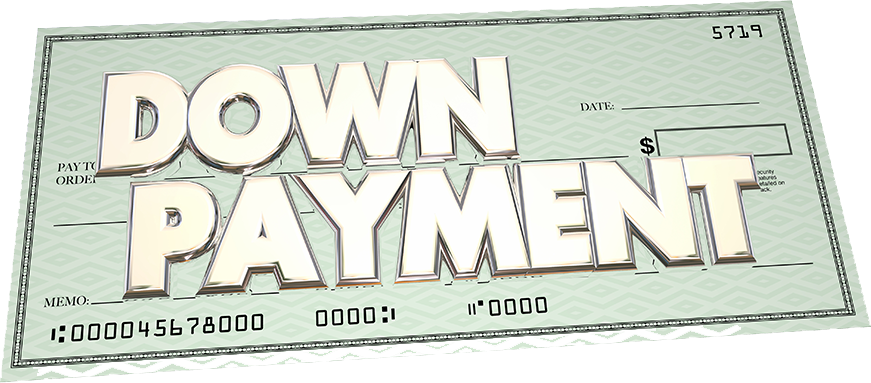Purchasing a home may be one of the biggest steps consumers can take. A mortgage is a significant financial commitment that will last for many years. Ensuring that you can afford a house is a crucial step before moving forward with a mortgage. Calculating the down payment and other factors such as the total price, interest rate, and monthly payment will help give you a clear picture of the full financial commitment of the purchase. Many mortgage calculators exist that help consumers explore this expenditure. These tools also enable you to see how a monthly payment might go up or down with changes to the interest rate or down payment.
We offer homebuyers a number of calculators to help them figure their downpayment requirements & how to reach their goals.

Reach Your Downpayment Savings Goals
Use our downpayment calculator & our renter-equvalent estimator to reach your goals.

Answers to Common Mortgage Questions — Home buyers searching for a mortgage must understand the terms of a loan. Some lenders will add other expenses such as insurance and taxes to a loan package, which will increase the monthly mortgage payment. Always ensure that you understand the monthly payment that would be due.
Mortgage Loans (PDF) — Calculating what you can afford to pay for a mortgage is an important step to perform prior to moving forward with a loan application. This calculation will involve adding up income and subtracting current expenses. The money left over can be allocated for a mortgage payment.
What to Know When Shopping for a Mortgage to Purchase a Home — The debt-to-income ratio is a determiner for calculating what a consumer can afford for a mortgage. Monthly housing expenses should not be more than 28 percent of the gross monthly income. The debt-to-income ratio should not be more than 36 percent of gross monthly income.
A Guide for the First-Time Home Buyer (PDF) — Owning a home involves not only paying a mortgage to service the loan; it also involves property taxes and homeowner's insurance. Some homes also require paying membership dues to the community association. Home buyers must analyze all costs associated with owning a home to ensure that it's affordable.
Mortgages: What You Need to Know (PDF) — Another way to analyze affordability for a home is to use a standard rule of thumb. Multiply your total annual income by two or three to arrive at an affordable house price. For example, an annual income of $50,000 would give a consumer a house price of between $100,000 and $150,000.
10 Things to Do Before You Sign on the Dotted Line (PDF) — Different lenders offer different loan packages with varying interest rates and other fees. Explore mortgage packages with several different lenders to ensure that you get the best loan with the most attractive rates.
Red Flags of Predatory Lending (PDF) — Some lenders engage in predatory lending tactics. These types of loans may have excessively high interest rates or fees, which are not necessarily disclosed to the borrower prior to the loan. Consumers must always review and analyze all terms of a loan prior to moving forward.
Financing Your Home — A mortgage may include additional charges such as loan origination fees and points. Points correlate with a percentage of the loan amount.
Qualifying for a Mortgage — A low credit score, inadequate income, or inadequate savings for a down payment are three factors that can drive up a mortgage payment. Lenders may add fees or increase interest rates for loans that involve these factors.
Choose Your Mortgage Wisely — A mortgage may involve either adjustable- or fixed-rate interest. The interest rate for a mortgage will have a significant impact on the total amount paid. Fixed-rate loans usually involve a higher interest rate, but the monthly payment would not change. Adjustable-rate loans usually have lower interest rates, but monthly payments may change over time.
Common Questions From First-Time Home Buyers — First-time home buyers typically have many questions. The U.S. Department of Housing and Urban Development answers common questions about HUD homes, bad credit, special programs, and working with a real estate broker here. Knowing whether it's possible to get a loan is a common concern for people thinking about buying their first home.
Debt-to-Income Ratio — Lenders calculate consumers' debt-to-income ratio to determine whether they are a good lending risk. This ratio involves adding up all monthly debt payments and monthly income and dividing the debt total by the income total. The resulting figure should not exceed 35 percent, or consumers could face financial hardship.
Finding the Right Mortgage and Realtor — Finding the right lender is a big decision for future homeowners. To narrow the choice, consumers should get referrals from family and friends, research possible mortgages, compare rates for loans, and speak with loan officers to get specific information about loans offered by lenders.